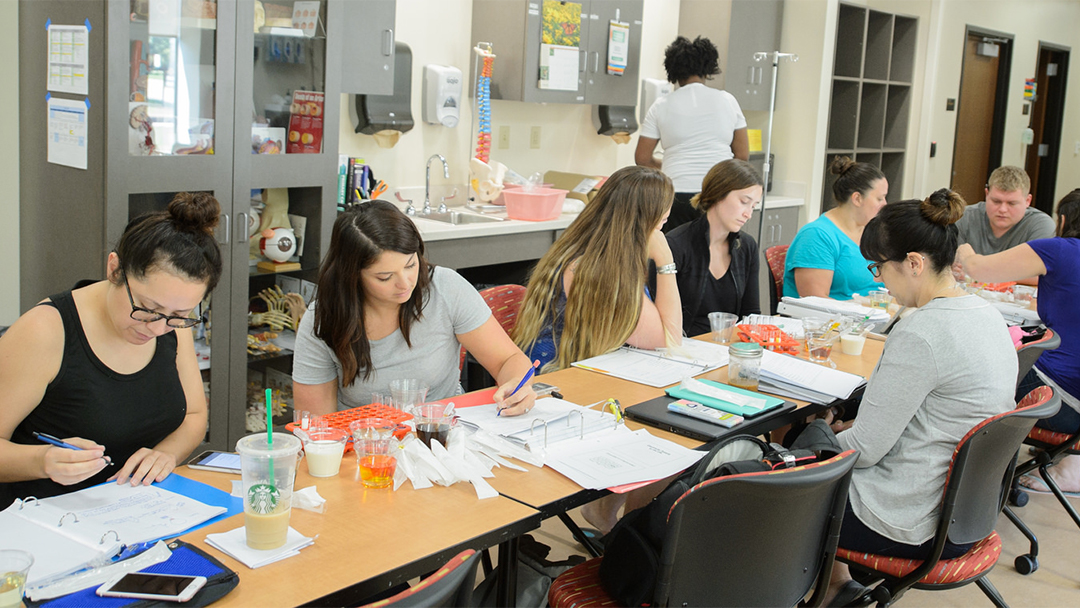The University of Wisconsin Oshkosh College of Nursing (CON) welcomed volunteers from the community into the Simulation Learning Lab to help facilitate a patient simulation exercise for third-semester doctoral students in the nurse anesthesia program.
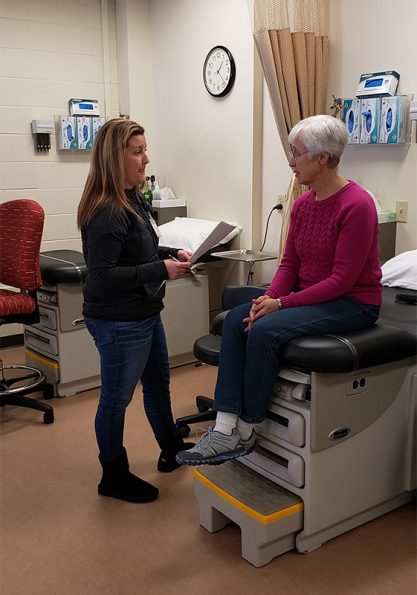
Ethel Conner
The four volunteers consisted of retired seniors from the greater Fox Valley area. They served as mock patients in a simulated clinical setting for nurse anesthesia students to practice preoperative interviewing and assessment skills necessary for proper anesthesia administration.
Among the volunteers was Ethel Conner, a retired physical therapist living in Shiocton. Conner’s background in the healthcare field made it easy for her to understand the learning benchmarks and the role she played in the simulation.
“I was excited to help out, because I knew how much the students would benefit,” she said.
In the interviewing and assessment exercise, the students asked Conner about her current state of health as well as her medical history. In addition to the interview, they checked her vital signs to determine if she would be a suitable patient for anesthesia.
“I thought the mock-up was a helpful way for students to get exposed to a variety of patients—people they don’t know—before they are in a real clinical setting,” Conner said. “It’s something that they need to do.”
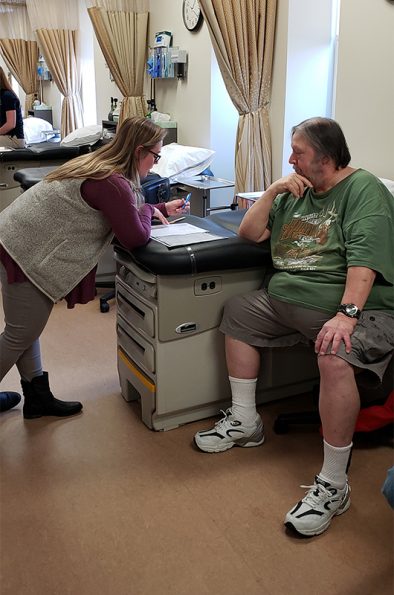
Glenn Rosko
Glenn Rosko ’86, was another volunteer acting as a patient in the simulation. Rosko is a retired nurse and Vietnam veteran with a bachelor’s in psychology from UW Oshkosh. He also has an associate degree in nursing from Cardinal Stritch College.
“I’d like to think that with this one small gesture, I can make a positive impact on the next generation of nurses,” he said.
Rosko spent his career as a nurse in long-term rehabilitation settings and nursing homes. His recent volunteer experience at UW Oshkosh has left him charged to continue helping out in nursing education settings.
“It’s a great feeling to pay it forward and help the students learn,” Rosko said. “Dr. Wren is an excellent teacher. She has really found her calling as an instructor. I can’t say enough good about her.”
Kathy Wren has been director of the nurse anesthesia emphasis program since its inception in 2016. She explained that nursing students typically perform interviewing and assessment exercises on their peers during early stages of learning. However, the opportunity to practice on community volunteers added valuable layers of understanding and applicability to the simulation. The volunteers served as “real” medical patients with “real” medical histories and varying levels of health literacy.
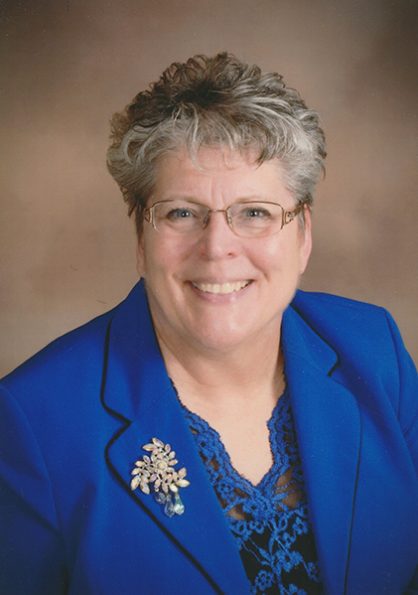
Kathy Wren
“The interviewing and assessment exercise is something the students could do on each other, but it’s more challenging and meaningful to perform these procedures on people they don’t know,” Wren said. “The college is always looking for ways to enhance instruction to develop caring and scholarly nurse leaders.”
Compared to the typical case studies generated for nursing simulations, the volunteers presented comprehensive and diverse medical histories and lifestyle choices for students to survey. Students could ask probing questions and dig into details that could very well affect the use of general anesthesia.
Before practicing in a true clinical setting, students in the Doctor of Nursing Practice (DNP) program with a Nurse Anesthesia Emphasis learn to work with anesthesia technology in the Simulation Learning Lab through a variety of exercises using high-fidelity simulators, volunteers and peers, animal and cadaver models, and other machines and equipment.
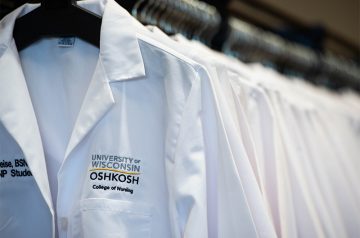 CON designed the DNP Nurse Anesthesia Emphasis in response to the statewide need for advanced practice nurse anesthetists, and to meet the specific healthcare needs of rural and urban Wisconsin.
CON designed the DNP Nurse Anesthesia Emphasis in response to the statewide need for advanced practice nurse anesthetists, and to meet the specific healthcare needs of rural and urban Wisconsin.
This particular DNP program is administered in a hybrid format over the course of nine semesters. The inaugural cohort began in June 2017 and will graduate in May 2020. The program currently has two cohorts with a third starting in June 2019.
Learn more:

